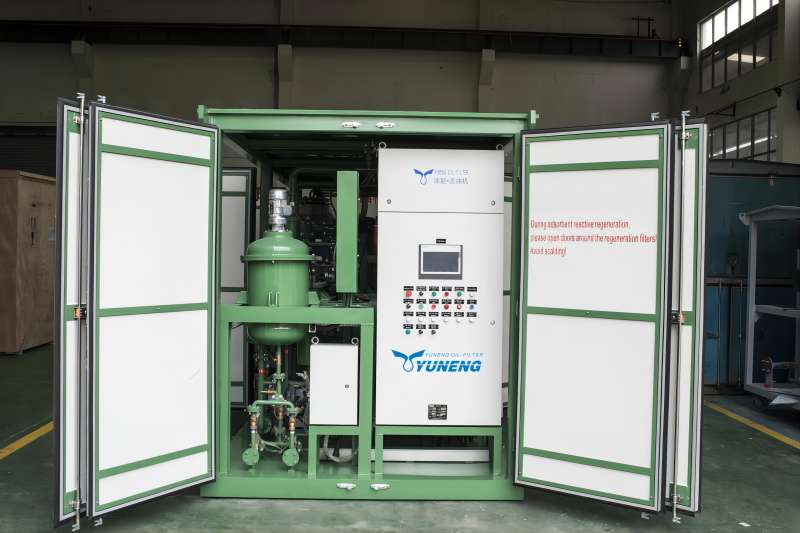Why Reclaimed Transformer Oil Is a Trustworthy Upkeep Remedy
Why Reclaimed Transformer Oil Is a Trustworthy Upkeep Remedy
Blog Article
Why Regenerated Transformer Oil Is Crucial for Reliable Power Equipments
The vital role of regenerated transformer oil in making certain the reliability of power systems can not be overemphasized. By recovering the oil's intrinsic chemical and physical homes, the regrowth procedure substantially enhances its dielectric stamina and thermal efficiency.
Importance of Transformer Oil
Transformer oil plays a crucial function in the reliable procedure of electric transformers. This specialized oil serves numerous functions, mostly as an insulator and coolant, ensuring the risk-free and trusted efficiency of transformer systems. Its dielectric homes protect against electrical discharges, thus securing the honesty of transformer parts. By providing thermal conductivity, transformer oil dissipates warm produced throughout electric procedure, which is essential for maintaining ideal operating temperature levels and prolonging the life expectancy of the tools.
Additionally, transformer oil works as an obstacle versus dampness and air, which can bring about oxidation and destruction of transformer products. The existence of pollutants in the oil can substantially hinder its protecting buildings, causing functional ineffectiveness and potential equipment failing. Normal tracking and maintenance of transformer oil are for that reason vital to making sure the proceeded efficiency of transformers.
The quality and composition of transformer oil are critical, as they directly affect the reliability and performance of the electric systems in which they run. Recognizing the value of transformer oil is vital for markets and utilities reliant on robust power infrastructure, highlighting the requirement for effective management and regrowth procedures to keep oil stability gradually.
Benefits of Regeneration Refine

Moreover, the regeneration process minimizes the destruction of oil, which can result in raised oxidation and acid development. This not only enhances the integrity of the oil however additionally decreases the risk of transformer failures as a result of insulation breakdown. The boosted quality of regrowed oil enables transformers to run at optimum degrees, inevitably leading to improved energy effectiveness and minimized functional expenses.
Furthermore, the regrowth process adds to keeping the total wellness of the power system. Transformers can run much longer without the demand for oil replacement, thus lessening downtime and upkeep efforts. In recap, the regrowth procedure provides substantial benefits by enhancing the longevity and performance of transformer oil, making certain that power systems operate reliably and successfully gradually.
Ecological Impact and Sustainability
The regrowth process of transformer oil substantially relieves ecological worries connected with oil disposal and waste management. Traditional disposal methods for used transformer oil pose significant dangers, including dirt contamination and water contamination. By regrowing oil, these risks are markedly lowered, as the procedure recycles existing sources instead of adding to lose build-up.
Furthermore, regenerated transformer oil can be recycled in various applications, which advertises a circular economic situation. This not just reduces the need for virgin oil removal-- a process that can be environmentally destructive-- however also preserves natural deposits. The regrowth process itself employs advanced filtering and filtration methods that eliminate dangerous pollutants, making sure that the final item surpasses or meets sector requirements for performance and safety.

Enhancing Transformer Efficiency
Substantial improvements in transformer performance can be attained via making use of regenerated transformer oil. This oil, created with innovative filtration processes, substantially boosts the electric insulation homes of transformers. By getting rid of impurities and impurities that usually endanger efficiency, restored oil ensures exceptional dielectric stamina, lowering the threat of electric failures.
Additionally, regenerated transformer oil exhibits improved thermal conductivity, which assists in reliable warmth dissipation. This characteristic is essential for preserving ideal operating temperatures, thus extending the life expectancy of transformers and lessening the probability of getting too hot - Transformer Oil Regeneration. Improved thermal administration likewise adds to the total integrity of power systems
Moreover, the chemical security of regrowed oil stops the development of destructive acids and sludge, which can negatively influence transformer parts. By keeping a cleaner inner atmosphere, this oil lessens upkeep requirements and expands service intervals.
Cost-Effectiveness and Performance
In regards to cost-effectiveness and efficiency, regrowed transformer oil offers an engaging alternative to standard oils. The regeneration procedure not just eliminates contaminants but likewise brings back the oil's initial homes, prolonging its functional life expectancy. This longevity converts into lowered frequency of oil substitute, thus decreasing operational prices in time.
Moreover, the usage of regenerated oil can dramatically decrease power losses related to ineffective protecting liquids. Its exceptional dielectric properties make sure optimum performance, boosting the reliability of power systems. Consequently, businesses gain from reduced maintenance expenses and reduced downtime, promoting a more efficient operational setting.

Final Thought
Finally, the regeneration of transformer oil plays a vital duty in ensuring the reliability and performance of power systems. By bring back the important chemical and physical residential or commercial properties of the oil, this process boosts dielectric toughness and thermal conductivity, ultimately decreasing the danger of insulation malfunction. In addition, the ecological advantages connected with recycling resources add to sustainability efforts, while cost-effectiveness and improved performance underscore the content necessity of utilizing her explanation regenerated transformer oil in modern electric framework.
Transformer oil plays an essential role in the efficient operation of electric transformers. Normal tracking and maintenance of transformer oil are for that reason vital to making sure the continued efficiency of transformers.
The regeneration process of transformer oil dramatically eases environmental concerns associated with oil disposal and waste monitoring. By lengthening the lifecycle of transformer oil, the power and resources generally consumed in producing new oil are considerably reduced.Considerable renovations in transformer performance can be achieved through the use of regenerated transformer oil.
Report this page